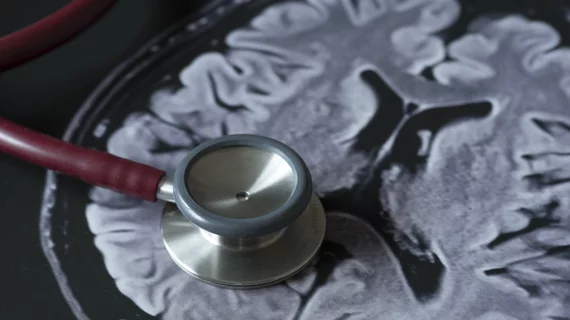Unresponsive COVID-19 patients have a better neurological prognosis than expected
Unresponsive patients infected with COVID-19 have a better chance of regaining consciousness than previously assumed, according to new research published in the Annals of Neurology.
Massachusetts General Hospital doctors performed standard brain imaging tests and resting-state functional MRI in a 47-year-old man who slipped between coma and minimal consciousness for weeks. They found substantial brain damage but were surprised to see restored functional connection in the patient on magnetic resonance imaging.
Senior author Brian Edlow, MD, director of the Laboratory for NeuroImaging of Coma and Consciousness at MGH, said any data is welcomed given how little experts know about post-COVID brain health.
"Our unexpected observations do not prove that functional MRI predicts outcomes in these patients, but they suggest that clinicians should consider the possibility that unresponsive survivors of severe COVID-19 may have intact brain networks,” Edlow said in a statement Monday. “We should thus exercise caution before presuming a poor neurologic outcome based on our conventional tests."
The individual in this case developed progressive breathing failure and received intensive treatment for weeks. Using resting-state functional MRI, the clinicians found functional connectivity within his default mode network, a brain region crucial in human consciousness. In fact, Edlow and colleagues said it was similar to that in healthy individuals.
Then, on day 61 of hospitalization, the man further improved. He followed verbal commands, blinked his eyes, opened his mouth and responded to voice commands.
Many studies have reported on the adverse neurological symptoms in patients suffering from the novel virus, but most have raised more questions than answers.
Co-author Bruce Rosen, MD, PhD, a biomedical imaging expert at MGH and one of the developers of fMRI applications, said: "We have to be cautious when interpreting results from a single patient, but this study provides proof of principle that clinicians may be able to use advanced imaging techniques like functional MRI to get a clearer picture of a patient's brain function, and hence the potential for recovery."

